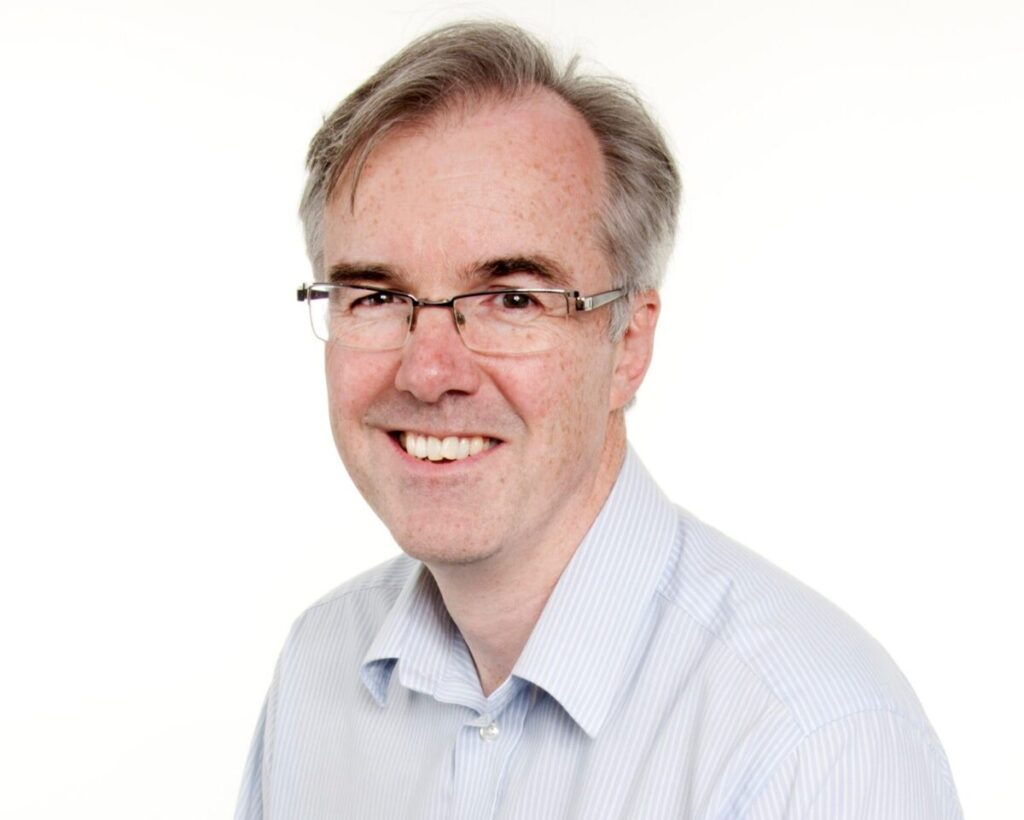A UNIVERSITY of Dundee academic is to head up the clinical trial of a wearable device that aims to reduce the growing number of fatal opioid overdoses in Scotland.
John Dillon, Professor of hepatology and gastroenterology at the University and consultant hepatologist at NHS Tayside, will lead the RESCU trial of the wearable biosensor.
The sensor alerts emergency services to overdoses to enable them to deliver a life-saving antidote.
Deaths from opioids occur due to respiratory depression, an unpredictable side effect of both prescription and illicit opioid use.

Scotland has the worst rates of overdose deaths in Europe with 1,339 deaths in 2020, a 5% increase from 2019.
Research says that nearly all these deaths are preventable when a highly effective antidote, naloxone, is administered early enough.
Currently, there is no ability to detect an overdose and use of naloxone relies on coincidental discovery of those affected.
The remote monitoring device is being provided by digital health company PneumoWave, who are developing technology capable of real-time detection of life-threatening respiratory emergencies.
PneumoWave are working with Professor Dillon and his colleagues to study the physiological effects of opioid use.
The study will capture data that will allow the company to further develop its sensor technology to accurately detect the onset of respiratory depression and alert first responders.
Professor Dillon and his colleagues at NHS Tayside previously carried out the work that led to Tayside becoming a world leader in Hepatis C elimination.
Professor Dillon has said that he hopes the trial will demonstrate that PneumoWave’s respiratory monitoring technology has the potential to save many lives.
He said: “Working in the field that I do, I see first-hand the devastation that opioid overdoses bring.
“Large numbers of my patient group die from overdoses every year and this is a major issue everywhere, but one that we in Scotland need to address particularly urgently.
“The bare statistics about drug-related deaths are there for everyone to see, but these do not tell the whole story – that of the many tragedies and lost opportunities that lie behind them and the heartbreak that they bring to families and loved ones.
“I am hopeful that this device will become a tool to contribute to the efforts to prevent these senseless losses.”
Dr Bruce Henderson, CEO and founder of PneumoWave and a physician working with patients at risk of overdose, said: “The RESCU study is critical in the development of this potentially life-saving technology.
“Professor Dillon and the rest of the R&D team have a proven record in improving outcomes for this difficult-to-reach group of patients and we are pleased to be working with them as we aim to be part of attempts to stop deaths from overdose.”
The RESCU trial is part of a wider program of clinical research that includes trials in King’s College Londonand the Queen Elizabeth University Hospital, Glasgow.
Patient recruitment to RESCU has already begun.

